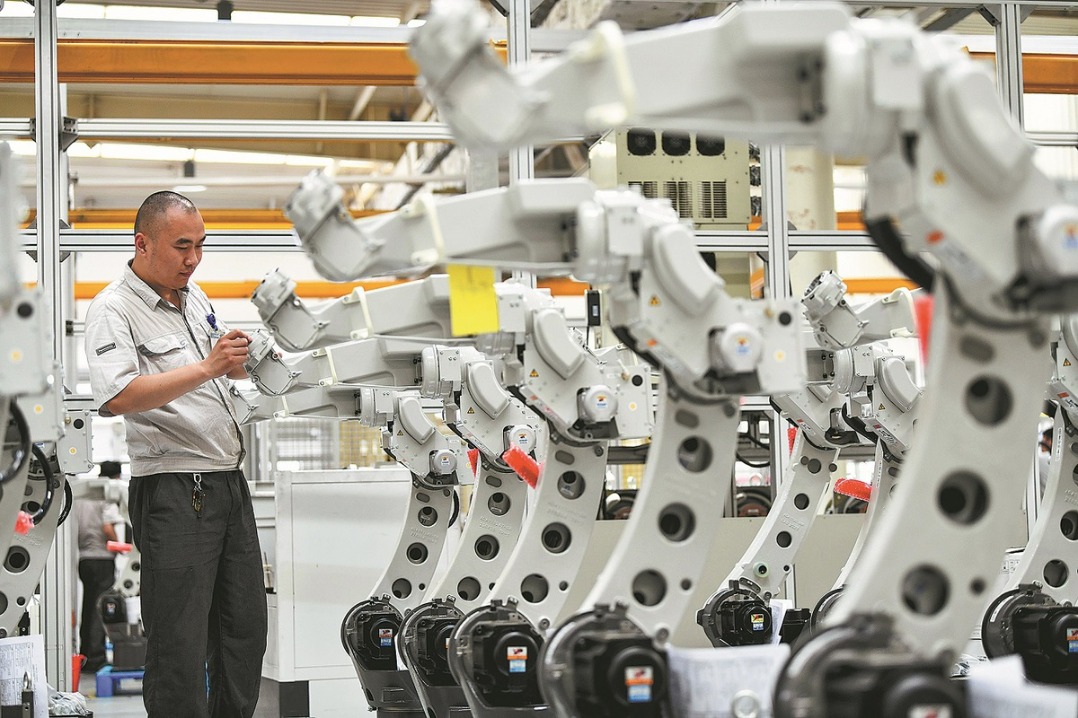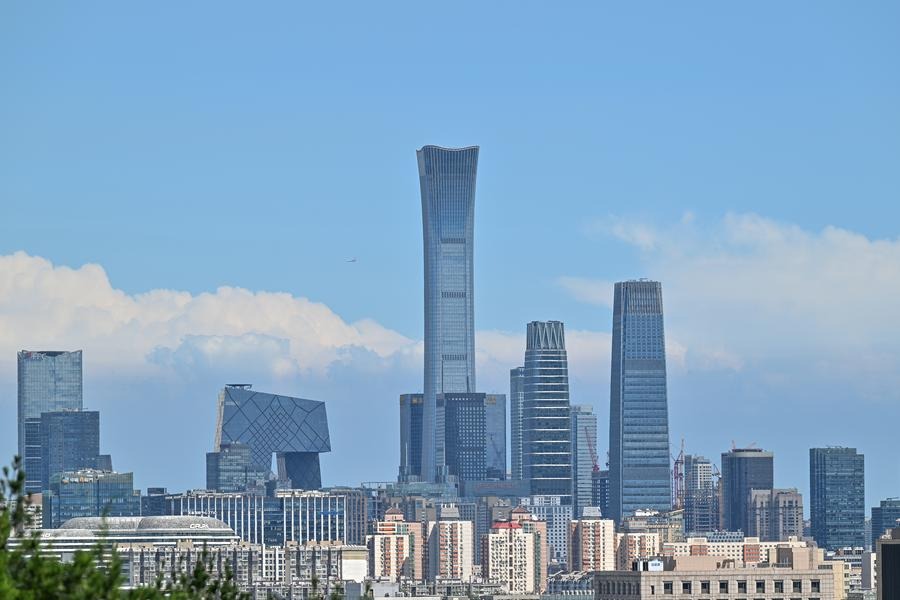People's congress system a pillar of democracy


The people's congress system is the fundamental political system in China. At the apex of this system is the National People's Congress, which serves as the supreme organ of State power. According to the Constitution, all administrative, supervisory, adjudicatory and procuratorial organs of the State are established by the people's congresses and are accountable to them, and subject to their oversight.
This system integrates the leadership of the Party, the role of the Chinese people as masters of the country and rule of law into a unified governance framework. Hence, the year 2024, which marks the 70th anniversary of the establishment of the NPC, should be celebrated as a landmark year of China's whole-process people's democracy.
The deputies to the NPC and local people's congresses at different levels are elected through a democratic process, making them accountable to the people and subjecting them to people's supervision, because in China the idea of the people as the masters of the country is more than just a slogan. Also, the people's congress system ensures the will of the people is translated into policies and laws, and legislative, supervisory and administrative powers are exercised only through a democratic political structure.
Over the past 70 years, China's electoral system has become increasingly inclusive, with direct elections extended to the county level, and a universal system of differential elections (in which there are more candidates than posts) implemented. The country's electoral system has also been adjusted to ensure equal representation for urban and rural areas.
This evolution of the election procedure is an apt example of the development of democracy in China.
As early as in the 1940s, creative methods, such as the "bean voting" system, were devised by the Communist Party of China in rural areas where most villagers were illiterate to ensure their participation in the electoral process. Election officials used porcelain bowls placed against each candidate's name for villagers to drop a bean into, effectively enabling one person, one vote.
The voting method has changed from the earlier practice of "beans as ballots" to the current system of voting with ballots. But the democratic rights of the people have not changed. More than 99 percent of the Chinese people aged above 18 in China have the right to vote and contest elections, with direct elections accounting for 94 percent of all elections in the country.
The people's congress governance system is not a replication of the Western democracy model but a product of China's historical and cultural development. Western political systems often emphasize the separation of powers among the legislature, executive and the judiciary. But China has adopted a different approach, where decision-making, and execution and oversight of powers are separated but not in conflict. This model is more suited to China's political and social reality.
Western-style democracy is often equated with the electoral process, particularly competitive elections. In contrast, Chinese-style democracy includes both electoral democracy and consultative democracy. The former involves the direct election of representatives while the latter emphasizes broad consultation and consensus-building before making major decisions. These two forms of democratic processes are complementary, not contradictory, and together they form the basis of China's democratic governance system.
Consultative democracy is another key feature of China's political system. It is based on the idea that major decisions should be made only after extensive discussions and consultations among all stakeholders. This consultative process is a characteristic feature of all levels of governments, from the grassroots to the national level. For instance, local governments often use tools like the "mayor's mailbox" and "citizen hotlines" to solicit public opinion, a practice that has been praised by foreign scholars as innovative examples of democratic oversight.
This approach ensures the voices of even the people at the grassroots are heard and their opinions taken into consideration by the decision-makers. From the legislative processes to policy formulation, the Chinese system of consultative democracy ensures that the governance system is responsive to the needs and desires of the people.
The people's congress system is a result of China's historical experiences and the choice of the Chinese people. It represents a new form of representative governance that differs from the Western model of democracy, but is effective in its own right.
The executive, the supervisory body, the judiciary and the prosecutorial organs — referred to as "one government, one commission, and two courts" (the State Council, the National Supervisory Commission, the Supreme People's Court and the Supreme People's Procuratorate) — have all been established by and are accountable to the NPC, which also exercises oversight over them.
Although these bodies have distinct responsibilities, there is no distinct separation of powers among them. In contrast, in Western political systems, the legislature, the executive and the judiciary are independent of each other. The Chinese system, on the other hand, operates differently in that it integrates these branches of governance that are responsible to the NPC, ensuring both unity and coordinated division of labor. This approach is rather unique and more effective, reflecting China's historical and political practices and development.
The author is a professor of Marxist studies at the Party School of the Central Committee of the Communist Party of China. The views don't necessarily reflect those of China Daily.
If you have a specific expertise, or would like to share your thought about our stories, then send us your writings at opinion@chinadaily.com.cn, and comment@chinadaily.com.cn.

































